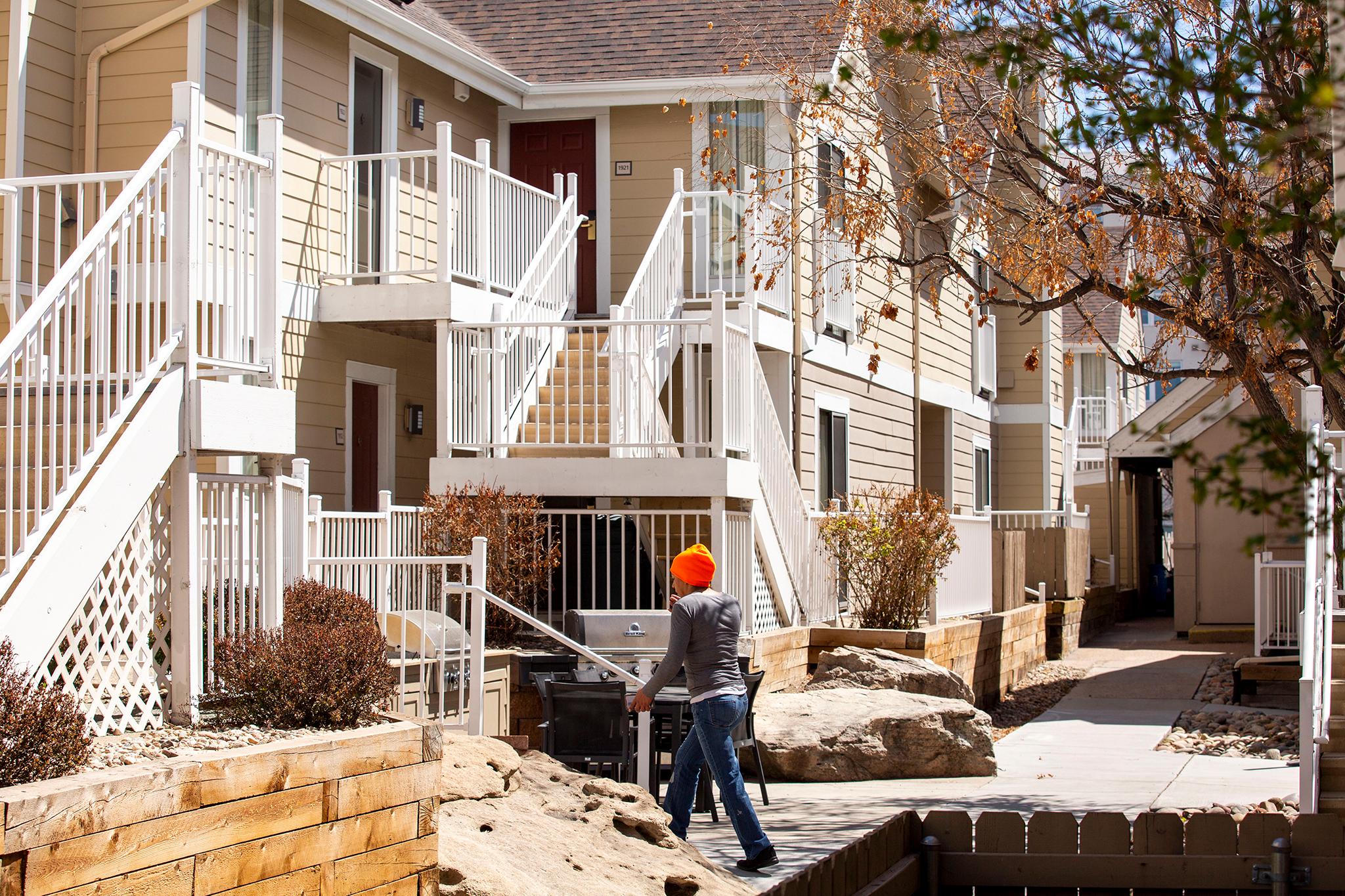Colorado is currently scrambling to disburse aid from the Emergency Rental Assistance Program, or ERAP, after the Supreme Court struck down the CDC's eviction moratorium last Thursday, ahead of its Oct. 3 end date.
The pressure is high as many renters and landlords are still waiting for the money. Colorado only paid out about 7.4 percent of approved funds by the end of July, but that number rose sharply to 75 percent by Sept. 2 as the state ramped up its programs.
But the bulk of ERAP funding is slated for residents of Denver, where disbursement has lagged the most.
By July, Denver had only paid out $1 million of the $49 million that was allotted, or just over 2 percent of its funding. But the city doubled its disbursements in August, paying out at least another $1 million, an amount which previously took six months go out.
"We do expect those resources to be going out the door much quicker than they have," Melissa Thate, Denver's housing stability director, said. "We're now in a great place to be scaling up and moving the funds out the door much quicker."
The Denver City Council recently created new contracts with nonprofits in an effort to speed up the system, using cash advances rather than federal reimbursements to give out rental assistance.
But getting such a massive system up and running will always present problems.
An Aurora woman who asked to remain anonymous told Denverite that she applied for federal rental assistance in April and was approved in June. But, now, nearly five months later, she's still waiting while the bills keep coming.
"I'm going to have to borrow from PayPal on my own to cover my rent... I put my car payment on hold for a month," she said. "I'm going to be short. I'm still up to see if I can make $300 with DoorDash before next Monday."
ERAP generally pays landlords directly, but her check never made it to her landlord. State officials have asked her to fill out an "Affadavit of Lost Warrant" form to cancel the first check and offered to direct deposit the rental payment. But her landlord doesn't accept direct deposit, and she fears the next check will get lost again.
She said her landlord has not given an eviction deadline. According to her, other renters in her building are in the same boat awaiting ERAP payments.
"My rent is $1,195 for a one-bedroom," the Aurora tenant said. "I'm sorry -- I just think the cost of living in Colorado is ridiculous. Right?" She already works two jobs and donates plasma on the side to make ends meet.
Some organizations don't believe a wave of evictions is imminent.
Drew Hamrick with the Metro Denver Apartment Association said, as of July 27, the association's landlords have shown a 97 percent payment rate from tenants.
"That's been the experience we've been seeing throughout the closures," Hamrick said. "Very, very strong, very, very stable, and that is continuing."
Hamrick said that throughout the state, only about half as many people are getting evicted as compared to other years. And since eviction processing takes a few months, he felt confident that Denver would not be seeing a spike in evictions for months to come, either.
However, the Metro Denver Apartment Association can only gather data from existing members.
"I think our membership skews a little higher to the larger housing providers," Hamrick said.
Small housing providers with fewer units -- which make up around 15 percent of the market -- are unlikely to join a trade association. And these landlords, often relying on fewer properties to stay afloat, face a much different reality in the face of non-payment. For them, the pressure to evict might be much, much greater.
"Since they don't have a diversified portfolio, if they happen to have a resident that's not paying them, it's much more devastating," Hamrick said. "So they're much less able to withstand any delays in the system."
All of this rental angst also comes right as Colorado passes some of the most sweeping renter's protection bills in the state's history, which address issues like late fees, grace periods and eviction proceedings.
However, the state's renter protections might just be arriving too late
The two bills with the most impact, SB173 and HB1121, won't go into effect until Oct. 1. This means during the month of September, after Polis' executive order ran out and since the eviction moratorium was suspended, layers of safety nets keep falling away.
Advocates are working on all fronts for renter's rights.
The Aurora woman whose ERAP check never arrived lives in an apartment building owned by Echelon, a large housing provider with around 10,000 units along Colorado's Front Range. They are in the midst of mediation over a lawsuit for what advocates say are predatory and unfairly high late fees -- some of the same practices that the two bills going into effect in October will address.












